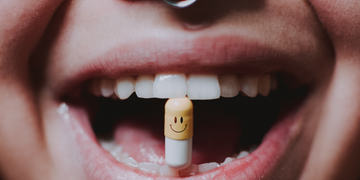What are the side effects of stopping birth control?

Do you think it’s time to stop taking birth control? Other than the desire to get pregnant, you might want to stop taking it if the costs start outweighing the benefits. Some forms of contraception might not be a good fit for you for a variety of reasons. Let’s consider what happens when you stop taking your current birth control and how to do it safely.
Certain types of contraception can be expensive, cause issues (like headaches), or are inconvenient (need to be taken around the same time every day). If you’re ready to stop taking birth control, we’ll also cover when it’s better to stop taking it entirely or to find an alternative method.
Do I need to change my birth control method or stop completely?
Whether you’re taking a pill, using an IUD, or using another contraceptive method, there are times in which it’s recommended you stop taking your current birth control. Hormonal contraception that contain estrogen may increase health risks if:
- You are a smoker who’s 35 years old or older
- You gave birth recently
- You have health conditions like a blood-clotting disorder, uncontrolled high blood pressure, diabetes, heart problems, or migraines with aura (among others)
In some of these cases, progestin-only hormonal contraception might be a safer alternative. It’s beneficial to discuss your options with your primary care provider.
How do you stop taking birth control safely?
Your medical history, among other factors, can influence how your contraception impacts you. Possible reasons to stop taking your current form of birth control include:
Shop the article
- Health concerns
- Side effects of your contraception
- Desire to get pregnant
You can usually stop using your contraception at any time. If you use birth control pills and are in the middle of a pack, you can finish the pack and then stop taking them or stop taking them without finishing the pack. What’s most important is that you consult with your primary care provider or OBGYN prior to stopping to see what they recommend.
If you would like to stop other types of contraceptive methods (such as an IUD or other implant), it’s important to visit a doctor to assist you with removing them.
Regardless of your reasons for wanting to stop or change your birth control, we recommend discussing with your primary care provider how and when to stop your contraception.
What happens when you stop taking birth control?
It may take a few months for your cycle to regulate again once you’re off birth control. It doesn’t take long before your chances of becoming pregnant increase as ovulation usually begins again a few weeks after you stop. If you stop using contraception but are still wanting to prevent pregnancy, consider an alternative form of protection — such as barrier protection or condoms — to prevent this.
If your period has not returned after 3 months off birth control, take a pregnancy test to make sure you are not pregnant or call your primary care provider to discuss your options.
What are the common side effects of getting off birth control?
Many decide to stop using contraception when they wish to get pregnant. Upon stopping, it’s possible headaches will be reduced, or your libido will increase. Headaches can be a side effect of hormonal changes, often associated with hormonal forms of birth control. Changes to your libido might be due to changes to discharge and natural lubrication. You can also experience side effects like:
- Heavier and more painful periods
- Irregular cycles
- Return of issues that led to using contraception in the first place (for example, heavy bleeding, PMS, or mood swings)
- Increased vaginal discharge and cramping in the middle of your cycle
- Changes to weight (either loss or gain)
- Increased acne and unwanted hair
How long do side effects last after you stop taking birth control?
Most side effects associated with stopping birth control are temporary. Your body will naturally regulate after you stop using hormonal contraception and can usually return to its baseline within a few months. Of course, the length of time it takes to regulate varies from person to person.
Whether you’re changing your form of birth control or stopping your use of contraception entirely, lifestyle factors and certain medical conditions can impact how long it takes for your body to adjust. Pay attention to how your body reacts to any changes, and reach out to your primary care provider if you have concerns about the intensity of side effects or the length of time you’re experiencing them.
When is it safe to get pregnant after birth control use?
Although it’s possible to get pregnant right away, it’s recommended you wait until your menstrual cycle has regulated again before trying to get pregnant, which can take a few months. However, if you plan to conceive, it doesn’t hurt to start preparing for a healthy pregnancy right away. Taking prenatal vitamins can start this process. Using prenatal vitamins can help provide the nutrients necessary for a healthy pregnancy.
If your cycle is still irregular three months after you stop taking birth control, we encourage you to contact your primary care provider to discuss your options.
Keep Reading

Should I tell my doctor I’m switching birth control?
Dec 27

When should I take a pregnancy test on birth control?
April 13, 2023 • 2 mins

What's the deal with switching birth control?
Nov 9










